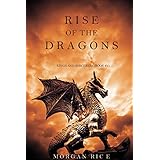

Maybe some of you will remember (at least if I remind you!) that around six weeks ago, I happened to hear about the language app Duolingo, got curious about it, and decided (quite on a whim) “to try a bit of Spanish”, to see how far that method of learning would take me, in, for example, a month or two. I did not set my goal very high – I actually only expected to play with the app for perhaps 30 minutes a day. But in reality, most days during these six weeks I probably ended up spending at least 1-2 hours with it (not all in one go, but for a little while now and then, several times a day).
I also found an old Spanish primer and grammar in my bookcase. My memory has been deceiving me for years to believe that those must have belonged to my mum, who (I thought) might have wanted to learn a few phrases before we went to Spain on a family holiday back in 1967. (I was eleven going on twelve at the time, and all I recall learning back then was to count to ten or twenty - so that I could buy paper dolls in the little shop in the street where we were staying.)
However, when taking a closer look at these books, I found that they were from 1974, so not connected to that holiday. Moreover, it’s definitely my handwriting (and not mum’s) in the ejercisios in the first three chapters of the primer, belonging to a TV/radio distance course. So even though I remember nothing at all about it, I must conclude that I started out with good intentions, but soon gave it up! (1974 was the year when I graduated from senior high and then took a “gap year” working in an office, while still living at home. It was also the year when I got my driving license, and I suspect I found other ways of spending my evenings…)
Now, 40+ years later, I’m happy to report that this time I stuck at it a little bit longer. Still remains to be seen how much further, of course! But in these six weeks, I managed to work my way through all the 14 levels of the Duolingo app (+ quite a lot of repetition in between), and reached “37% fluency”. Have to admit I’m feeling quite proud of myself - even if I do realize that most of my progress has been in passive understanding rather than in active use of the language. (And as for grammar… I think one probably does need some extra time with a grammar book besides Duolingo, to grasp some things properly…)
To celebrate my 40 days introduction, I am now giving myself a serious test of the “understanding” part, though. Yesterday and today I have read the first two chapters of a book which I found free for Kindle in both Spanish and English: Rise of the Dragons / El Despertar de los Dragones by Morgan Rice.


Rice is an American author of fantasy novels, not Spanish - but never mind! The main idea was to find a book (preferably for free) that I could read in both languages, so that 1/ I can compare, and 2/ if I feel I get stuck, I can still finish the book... I also invested a few dollars in a proper Spanish-English dictionary for Kindle (only need to point at a word on the screen and the English translation / explanation comes up).
So far I’m actually getting along rather well, even if at a very slow pace … What I did was to read the whole first chapter in Spanish (and really making efforts to understand); and then the same chapter in English. Same procedure with the second chapter today. Of course there were details I missed or got a little bit wrong. But on the whole, I am surprised (and encouraged!) at how much I actually do manage to understand – and also at how much of the vocabulary learned from Duolingo came in useful.
After having gone through all the levels of Spanish, I have also (the last few days) tried a bit of French (which I did learn for five years at school back in my teens but have hardly used since). I’m not sure whether it’s me or the app, but so far I’m finding the French version more boring than the Spanish one. Not because I’m sailing through it (rather the opposite – I’m a bit shocked at how much I’ve forgotten) but because of the content. Seriously: I’ve never been to France. But if anyone reading this has more intimate knowledge of that country, can you please tell me: How many Frenchmen nowadays have a pig? And how many of those who do happen to have one, carries it around with them? And if so – why? Because they only seem to lose it, and then have to go looking for it, and… (…)
So, getting a bit bored with French pigs, I switched to Welsh, just out of curiosity, because I’ve always been fascinated with it (ever since family holidays in Britain in the 1970s) and thinking that it must be such a hard language to learn. I still suspect that it is. But I do quite like the introductory approach Duolingo is taking to it. If ever I go to Wales again I’ll be able to say: Draig dw i (I am a dragon)!

(National flag of Wales)



















 ‘'
‘'




 ‘'
‘'


















 ‘'
‘'













